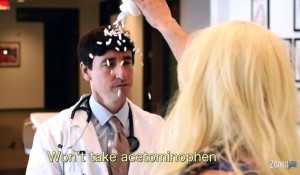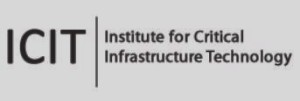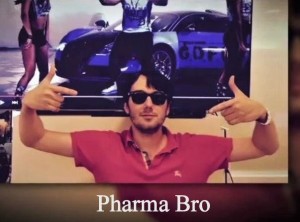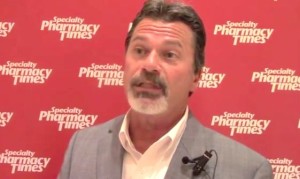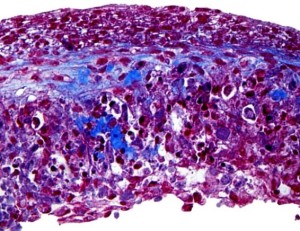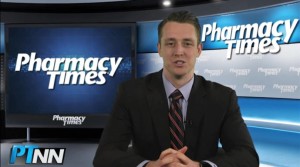- One-Third of Clinical Trial Results Never Disclosed, Study Finds (bloomberg.com)
One-third of clinical trials conducted at 51 major U.S. universities and academic hospitals were never published in a peer-reviewed journal or in a government registry online, according to a new study...The researchers looked at 4,347 trials that were completed between October 2007 and September 2010. Of those, only 29 percent had results published within two years of finishing data collection, and 13 percent were posted on the government database ClinicalTrials.gov within the same period...about 67 percent of the studies disclosed their results by...2014...You’d like to think that academic institutions are role models for science...The truth is we’re not doing very well...University of Florida and Ohio State University joined Yale with some of the highest rates of publication in peer-reviewed journals...Boston University, Cornell and Oregon Health and Science University...had among the lowest rates...Pharmaceutical companies, the government and foundations invest a lot of money in clinical trials...If the results aren’t made public, that’s wasted money...Disclosure of results is critically important to advance science...Whether those results are positive or negative, and are important as a part of our agreements with funders as well as the participants in clinical trials...Beyond creating a data void that makes future research more difficult, unpublished results also may represent an ethical issue. Patients in clinical trials undergo experimental treatments with the understanding that doing so will advance medical knowledge, which can’t happen if the results aren’t published...
- Why You Should Watch Zubin Damania Innovate Healthcare (medcitynews.com)Blank Script | Taylor Swift (youtube.com)Big Pharma | Big Poppa Parody by Biggie | ZDoggMD.com (youtube.com)
You may not know the name of one of the most talented and innovative forces in healthcare but there is a high probability that you have seen one of his video parodies about health. This is because Zubin Damania, M.D., goes under the alter ego ZDogg MD...He is creator of ZDogg MD and the Founder and CEO of Turntable Health, a direct primary care clinic in Downtown Las Vegas...He has been called the Weird Al of healthcare and uses humor and pop culture to education populations about important health issues... So by creating this outlet for humor, satire, and creativity, I sort of found that unique part of my voice that had been suppressed, and I was able to feel like I was reaching people and effecting real change that I couldn’t do in the hospital...As a hospitalist in practice for 10 years, I was deep in the trenches of medicine, deep in the daily paradox of joy and horror...So I speak the language of that world, a language that emerges from the shared experience of healthcare people. Very often this tribe feels voiceless, so my goal has always been to find a new way of expressing not just our dissatisfaction, but our vision for how to make things better...Payment models and primary care are at the top of my list...Fix that base of the pyramid and other stuff will fall in place. Fixing that culture is crucial...
- Report calls out weak FDA stance on medical device cybersecurity, favors stronger regulation (healthcareitnews.com)Assessing the FDA's Cybersecurity Guidelines for Medical Device Manufacturers: Why Subtle 'Suggestions' May Not Be Enough (icitech.org)
...the Institute for Critical Infrastructure Technology, a bipartisan collaborative meant to bridge the gap between federal agencies and private-sector leaders in the interest of protecting the nation's technology backbone, claims recent guidance from Food and Drug Administration for device makers falls way short...In practically all matters of cybersecurity within the health sector, the FDA seems to be in a constant state of offering subtle suggestions where regulatory enforcement is needed..."Assessing the FDA's Cybersecurity Guidelines for Medical Device Manufacturers: Why Subtle 'Suggestions' May Not Be Enough," knocks the agency for failing to implement enforceable regulations for manufacturers...It may be beneficial to healthcare providers, healthcare payers, and legislators to petition the FDA to make the guidelines regulatory. Otherwise, medical device manufacturers could ignore the guidelines altogether...
- Pharma Nerds Aren’t Pharma Bros (forbes.com)
Martin "Pharma Bro" Shkreli’s testimony – or lack thereof – at a House Oversight Committee hearing justifiably angered many people...Overnight, he became the embodiment of a pharmaceutical industry routinely accused of putting profit-seeking before patient health...But policymakers shouldn’t jump to conclusions...There are many important differences between the "Pharma Nerds" developing innovative life-saving drugs – including Gilead Sciences’ Sovaldi – and the "Pharma Bros" exploiting loopholes to profit from generics like Daraprim...What’s the difference between daraprim and Sovaldi?...quite a bit...Sometimes, short term monopolies are good for markets and society..Patents encourage innovation in sectors where the upfront costs of developing a product are very high. Monopoly patents are designed to ensure that innovators that they can recoup these costs and earn a healthy profit before generic competitors enter the market...Monopoly patents – with all the implied pricing power – are necessary for producing innovative drugs...But generic drugs are not "innovative," although they are critical in maintaining a healthy and competitive pharmaceutical market…Daraprim is a generic, and generics shouldn’t – with some very narrow exceptions – benefit from the same monopoly protections that innovator drugs do...patents will continue to work well for most products, and governments should continue to prioritize strong IP to promote medical innovation...Lowering prices by fiat will just tell investors to take their dollars elsewhere.
- Alibaba pilot promises seamless online doctor to prescription service in China (fiercepharmaasia.com)
...online market giant Alibaba Group launched a pilot medical service last month in China that promises a patient can visit a doctor online and get his prescription filled the same way with home delivery and payment to boot...part of Alibaba's health business, aims to tap into a market that iResearch said had an estimated revenue stream of 16 billion yuan ($2.4 billion) last year…We want to build a health care product sales platform that links manufacturers, wholesalers and retailers to offer various medical products and services to customers…The pilot saw patient Hu Tianshun enter medical data via an online form and then a video chat with a doctor in another city was held…adding the doctor made a diagnosis and places a online prescription order with an Alibaba's online shops...Hu got his drugs the next day, and completed the transaction by paying the deliveryman…
- McKesson AccessHealth enhances suite of reimbursement tools (drugstorenews.com)
McKesson AccessHealth...expanded its suite of reimbursement and performance enhancement tools and relationships...While the shift to preferred networks and new reimbursement models is challenging for many independents, there are also opportunities for incentives...There is a tremendous chance for innovative pharmacies to leverage their strengths, improve their overall pharmacy performance and maximize their reimbursement by interacting with their patients and providing care...more than one-third of Medicare D claims through AccessHealth contracts will include performance-based reimbursement incentives...those pharmacies or pharmacy networks who display top performance will be charged a smaller...Direct and Indirect Remuneration, amount than those who underperform. This...presents independent pharmacies with an...opportunity to reduce their DIR charges, thereby maximizing their potential reimbursement. The new suite of tools include:
- AccessHealth Pharmacy Performance Guidebook...offers detailed instructions on how to develop action plans to improve patient behavior and boost outcomes using such tools as medication therapy management case completion, refill reminder programs, medication synchronization and behavioral coaching;
- AccessHealth DIR Estimator Tool...allows a pharmacy to enter information specific to them and estimate accrual and incentive amounts that may impact DIR payments in order to plan accordingly;
- AccessHealth Webinar Series...designed to help independent pharmacies prepare for new reimbursement rates as well as identify opportunities to leverage the movement toward pay-for-performance incentives.
- Improving Data Analytics for Payers in Specialty Pharmacy (specialtypharmacytimes.com)
David D'Altorio, PharmD, senior vice president of health services at MedImpact Healthcare Systems, discusses the benefits of MedImpact's iRx program.
- Engineers 3D Print Tissue That Mimics How The Human Liver Functions (forbes.com)
Engineers at the University of California...say they have successfully 3D printed life-like liver tissue that simulates how the human liver functions and is structured. The researchers say the tissue could be used as a platform for drug screening...In the case of Federal Drug Administration approval for a drug, on average it takes around 11 to 14 years and $2.6 billion to get a drug to market...Around 90% of drugs don’t pass animal tests or human clinical trials. In the case of the new 3D printed tissue, the researchers say pharmaceutical companies could use the tissue as platform in the lab to focus on drugs that appear to be more promising and eliminate drugs that have less efficacy...To create the liver tissue that mimics real human liver tissue, the engineers created a diverse combination of liver cells and supporting cells systematically organized in a hexagonal pattern under a microscope. But to print that complex tissue, they needed a 3D printer that could accommodate the 3D micro-structures found in biological tissue. The team created their own bioprinting tech in the lab capable of reproducing the elements and features of the tissue…I think that this will serve as a great drug screening tool for pharmaceutical companies and that our 3D bioprinting technology opens the door for patient-specific organ printing in the future. The liver tissue constructed by this novel 3D printing technology will also be extremely useful in reproducing in vitro disease models such as hepatitis, cirrhosis and cancer...
- Pharmacy Week in Review: February 19, 2016 (pharmacytimes.com)
Mike Glaicar, Business Development: Pharmacy Times...(PTNN) This weekly video program provides our readers with an in-depth review of the latest news, product approvals, FDA rulings and more.
- Hollywood Presbyterian hack signals more ransomware attacks to come (healthcareitnews.com)Hollywood Presbyterian Medical Center Pays Hackers $17K Ransom (nbcnews.com)
As hackers hold Hollywood Presbyterian Medical Center’s data and demand $3.4 million Bitcoin to give it back, experts say the "hostage situation" likely signals more ransomware attacks to come...There is no style to this attack...it was likely messaging-based, whether a malicious link in an email or perpetrated via a social network and, basically, an employee fell for it...Such attacks are particularly alluring to cybercriminals...because they are reasonably easy to pull off and have a big impact...the cybercriminals are demanding the hospital pay a $3.4 million ransom if they want their data back...In the meantime, executives declared the hospital in a state of emergency and employees are reverting to paper and faxes to communicate..."This incident really sheds light how weak the core of many providers' internal infrastructure is...It's very common for hospitals to have a large number of outdated and vulnerable systems on the network...

